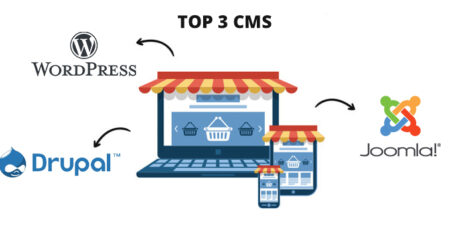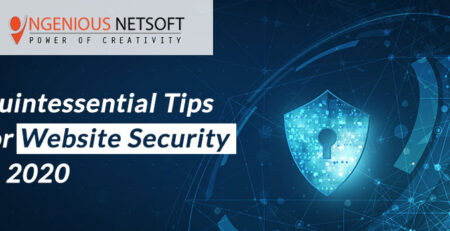Ultimate Checklist to Secure Your Website from Cyber Attacks
There are near a billion websites which are working today which means that one out of seven individuals living on the planet today have a website. Strangely, in every second, several websites are created which is incredibly significant to web service providers. However, the stress is, how are these websites created, and would they say they are protected from cyber threats? To create a secured website, the procedure must comply with some steps from registration, design, coding, functionality, and development.
This article incorporates the means required for eCommerce website development in India for individual and business purposes:
Choosing a Host: When beginning a site, a developer has a variety of hosting options to look over where each supplier has peculiar benefits that enables them to advance their websites. Most importantly, their level of protection is controlled by features, for example, (WAF) – web application firewall – as well as DDoS security. There are many certified web hosts that empower web developers to decide the level of security, and this is surely the initial step of making a safe website.
Web application firewall is a basic tool that turns away any endeavor to break into and compromised websites. For example, WAF screens the existence of SQL – structured query language as well as cross-site scripting which are notorious at exposing personal information. Loss of information from the site results in loss of money and wastage of time, however, picking the right hosting provider keeps your website secure from cyber-attackers.
Choosing a Correct CMS: In present days, assembling a totally working website doesn’t expect you to be a developer, on account of CMS. CMS is a tool to apply while making a website as it enables the management of future web content, and most importantly improving web security, reviewing the program code and managing the fast web processes. CMS permits website designers to build, edit, run, and support website pages on one interface.
The tool streamlines the design of websites as well as publishing of content online, thus guaranteeing the site and the content in it are streamlined. CMS watches the site against vulnerabilities and eliminates possible security gaps. The developers of the system update the device to make websites to withstand advanced and lethal attacks by cyber criminals. Joomla, Drupal, and WordPress are some of the notable CMS platforms which are easy to use that permits helpful establishment changes for both web developers and users.
Management of Add-ons and Plugins: A plugin is a software that improves the functionality of a browser. Given by a third party and furthermore referred to as add-ons, these web accessories include toolbars and offer help for different capabilities, for example, graphics, animations and both audio and video features. Though add-ons and plug-ins improve the experience of web users, unnecessary use of these components isn’t sound for your site. The excess of add-ons and plugins causes low responsiveness of the site.
Regular monitoring of these web accessories debilitates the probability of defensive systems. Add-ons and plugins require constant updates and maintenance. The mechanism of protection to bugs is equivalent to the technique for development. Without regular updates, the accessories are potential entry points of serious cyber-attacks. Web developers can use security-particular add-ons with the ability to decrease malware.
Implementing Reliable Passwords: Owning a safe website expects you to actualize a solid password. Utilizing weak passwords frequently brings about data breaches which are serious issues to organizations. With the developer or a bunch of personnel teaming to create a website, it is critical to set the best password practices. Cyber-security specialists encourage users to use diverse password platforms to create reliable passwords. A mix of symbols, letters, and numbers should be used when creating a password.
Using SSL Certificates: Performing secure transactions online is one of the core functions of businesses today. SSL certificates are considered probably the surest methods for guarding online purchases. SSL certificates empower website owners to verify the information put together by customers or other visitors to their website with the data provided by their host. SSL enables the site proprietor to collect critical information, for example, credit card numbers. In addition to SSL, websites can exchange HTTP addresses for HTTPS addresses.
Take Away
Though it is practically turning into a requirement for each business today to own a website, it isn’t clear how much they should keep themselves secure against cyber-hackers. Yet, the reality of the situation is that they should mind making sure about their websites as much as they have doors to their premises. The entrepreneurs are increasingly vulnerable as they lack adequate assets and diligence to contract good security experts.
Be that as it may, security experts agree that most websites that experience assaults are the ones that don’t follow straightforward preventive measures during their development. The above steps are simple ways for reliable, reputable, and secure eCommerce development services in India.




